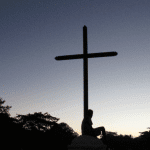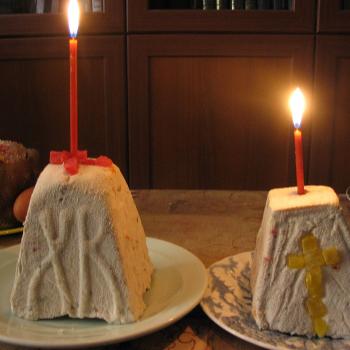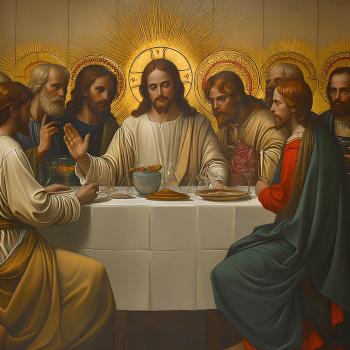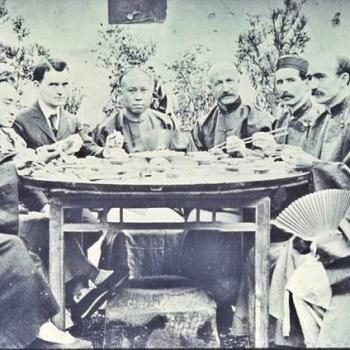For those of us who consider Easter the most central and essential part of the Christian calendar, the decision to suspend Sunday services one year ago was the strangest of Lenten resolutions. Personally, I had attended church every Easter of my life—except once.
A few years earlier I took my family rafting on Easter morning. Skipping church wasn’t entirely premeditated. We were driving from New York to California for my oldest daughter’s college graduation and happened to land in Tennessee’s Blue Ridge Mountains on Holy Saturday. In the morning, I sheepishly navigated our rented campervan past the already overflowing church parking lots to the empty lot of the Nantahala Outdoor Center.
As the only customers that Sunday morning, we received outstanding service. Our guide, Ellen, who sported the outdoorsy look that reminds me I work in an office, was excellent in every way—skilled, personable, and totally trustworthy. She also spooked me with what seemed preternatural insight. “So,” she said as soon as we launched, “you’re Presbyterian, right?” Was this divine revelation? Surely, we could be taken for Congregationalists or at least Reformed Baptists. Was God needling my already pricked conscience for embarking on a paschal paddle? Although her hunch that Pepperdine, our destination, was a Presbyterian school was incorrect, the morning plunge soon occasioned religious reflections more memorable than any Easter sermon I had ever heard.
As the current picked up, Ellen began barking orders. She steered us skillfully over and around boulders of all sizes, quickly winning our confidence. Upon approaching a particular rapid, she called out, “Paddle hard forward on right, hard back on left. Go!” With adrenaline rushing, we followed our leader’s commands. Instead of shooting through the rocks, as intended, we got hung up on a feature called a “pillow,” and started spinning counterclockwise—once, twice, three times. We finally realized the joke was on us. “That was completely unnecessary,” my wife Julie announced amidst our laughter.
The philosopher, Bernard Suits, famously defined sports as “the voluntary attempt to overcome unnecessary obstacles,” which is a pretty good description of rafting. It’s also a good description of long-distance road tripping; fourteen days to overcome 5000 miles of unnecessary obstacles? Completely unnecessary! As I looked over my soaked, smiling children—one of those expansive, magical moments in which all seemed right with the world—the logic of the moment washed over me. Bringing these little ones into being, an overflow or outgrowth of the love that Julie and I have for one another, was also unnecessary.
Glancing upstream, I realized that what C.S. Lewis said of friendship is true also of marriage: “Friendship is unnecessary, like philosophy, like art, like the universe itself (for God did not need to create). It has no survival value; rather it is one of those things which give value to survival.” Lifting my eyes to the hills, I marveled at the wonders of nature and saw more clearly than ever what preachers have been trying to tell me all along: Creation is “gratuitous.” At least since Aquinas, theologians have argued that the world is contingent rather than necessary. It is a gift, created out of the overflow of love that the Father, Son, and Spirit hold for one another.
All of which brought my musings back to Easter. In the Christian tradition, Holy Week is a remembrance and reenactment of a gift. When God gave his Son so that we might enjoy eternal life, he was not meeting any obligation that He had toward you or me. In that sense, the life, death and resurrection of Jesus were “unnecessary”—or non-obligatory. True worship, it follows, is also freely given—more nearly a dance than a duty.
Perhaps it was all a ruse to rationalize my truancy—after all, we are taught, “The heart is deceitful above all things” (Jeremiah 17:9). But, as my fellow elders and I again approach the decision as to whether to gather for worship this Easter, I take consolation in knowing that Christian practice is a lot like rafting—occasionally disorienting, often exhilarating, and much more than a mere necessity.














